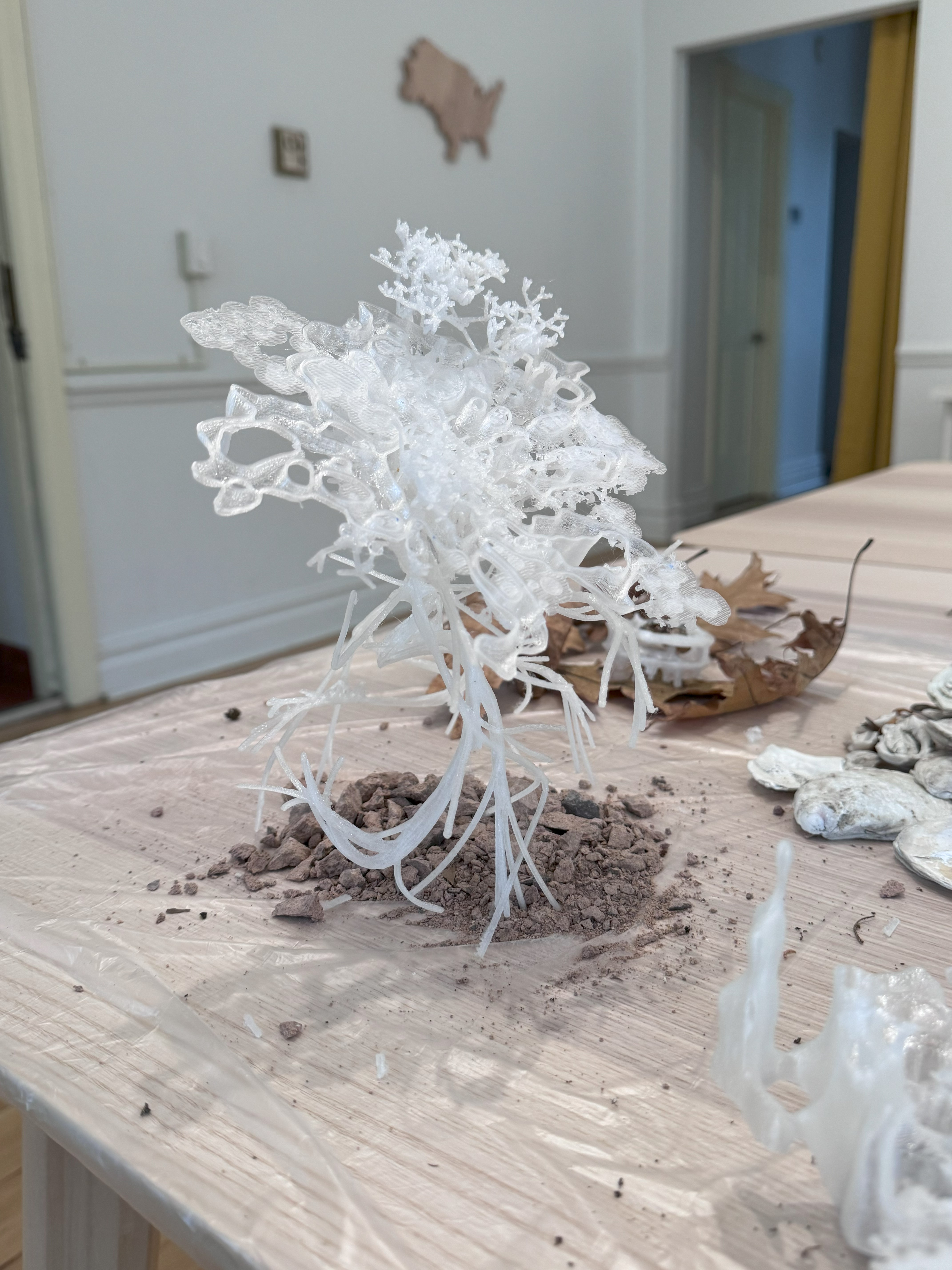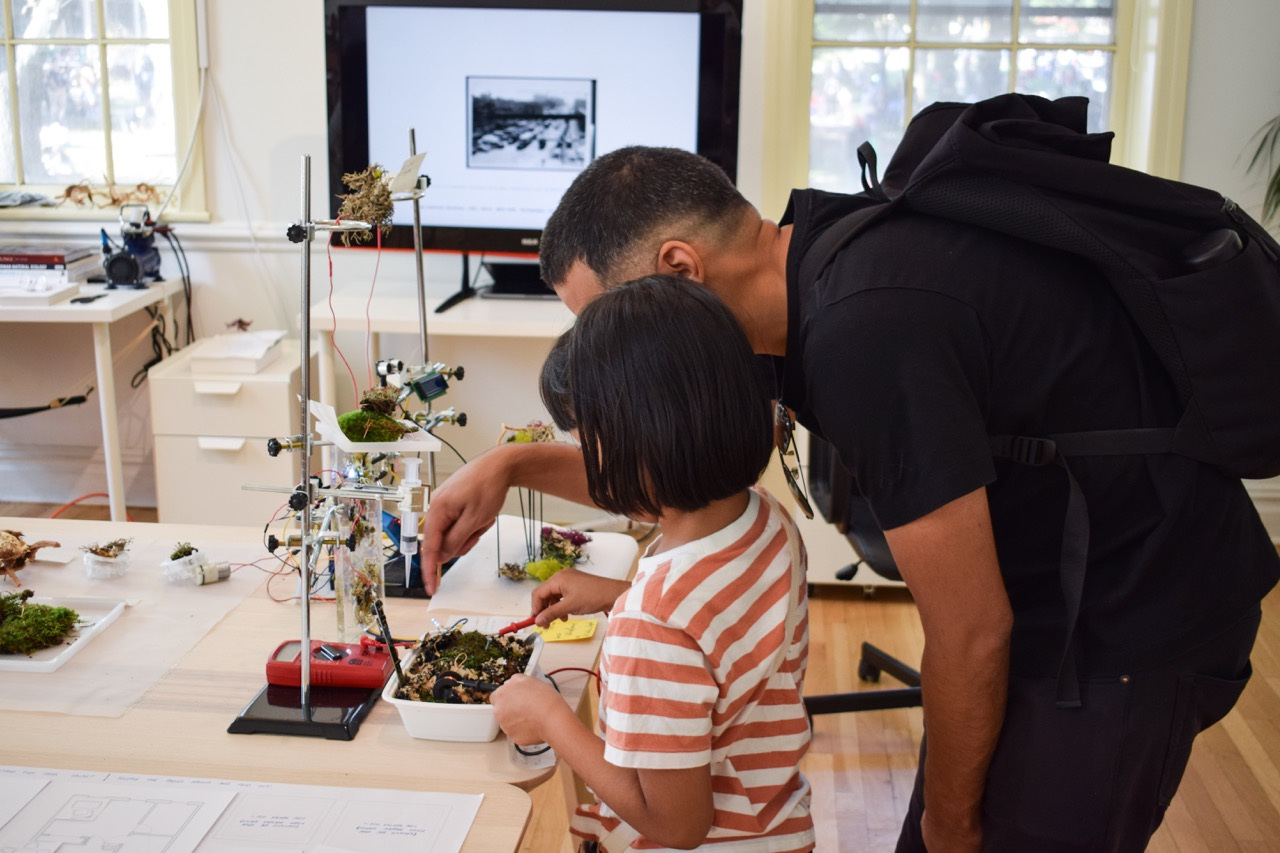




The Lichenized Biosystem integrates lichen as a living facade, fostering a symbiotic relationship that includes humans, nature, and architectural structures. The proposed module is composed of lichen growing on biomaterials, in conjunction with biofuel cells generating electricity, forming an integrated facade panel. The research delves into Lichen—a symbiotic combination of mycelium and algae—that excels in extreme conditions and outperforms forests in CO2 sequestration, capturing a quarter of the Earth's CO2 with lichen covering just 8% of its surface. This proposal challenges the conventional view of plants as mere resources by recognizing their consciousness and promoting a new understanding through communication technologies. It promotes regenerative urban living, prioritizing coexistence with nature, thereby improving environmental health and mental well-being. By deploying Lichenized Biosystems on building exteriors and utilizing recycled materials for bio-substrates and biofuel cells, buildings are transformed into carbon sinks, enhancing ecological benefits for a carbon-neutral future. This approach envisions a shift in architectural practices towards integrating lichens, encouraging symbiotic ecosystems, and reducing emissions with coexisting envelope systems in urban structures. This endeavor represents the culmination of my 2023 fall fellowship at Institute for Public Architecture on Governors island.
